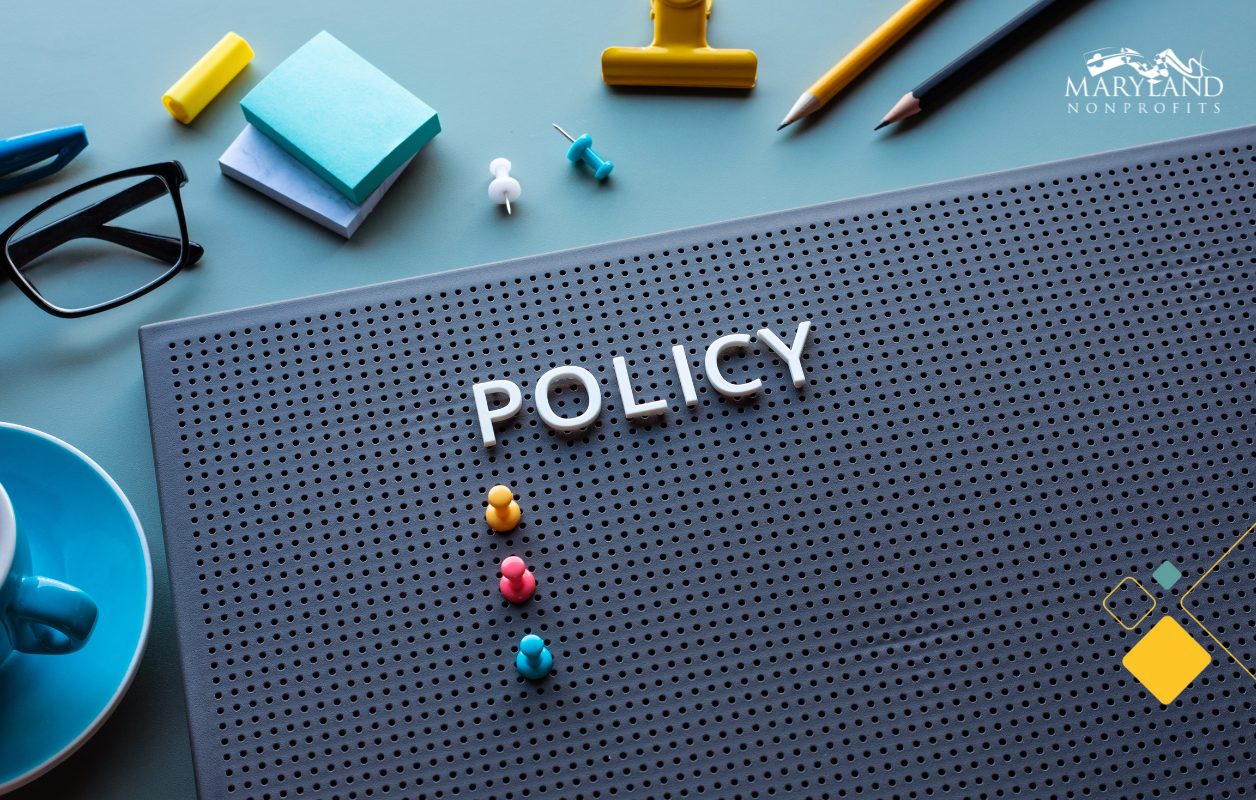Key Bills Impacting Maryland’s Communities in 2024

As the 2024 Maryland General Assembly session unfolds, a series of bills stand poised to significantly impact the diverse communities across the state served by Maryland’s 40,000 nonprofits. These legislative efforts target a variety of critical issues, from healthcare affordability to social equity, marking a potential turning point in Maryland’s commitment to its most vulnerable residents.
Fair Share Maryland Plan: This stands out as a pivotal proposal in the 2024 Maryland General Assembly session, seeking to revamp the state’s tax system to address an impending budget crisis. By addressing corporate tax loopholes and ensuring wealthier individuals contribute proportionately, the plan aims to generate significant revenue for the state, which could be channeled into critical public services such as education and transportation systems. These improvements benefit the low-income and marginalized communities nonprofits serve. The plan’s success hinges on legislative support, public advocacy, and collaborative efforts to create a fairer tax system, promoting equity and social justice for all Maryland residents.
Support the Fair Share Maryland Plan
Just Community Designation (SB308 / HB241) and the ENOUGH Act (SB482 / HB694): These bills are set to reshape the state’s approach to racial justice, equity, and civil rights. The Just Community Designation focuses state resources on communities disproportionately impacted by economic and housing inequities and the impacts of discriminatory policies and practices. Meanwhile, the ENOUGH Act takes a holistic approach to poverty alleviation, including an emphasis on the elimination of childhood poverty, promising to invest heavily in the state’s most impoverished areas. These bills collectively signal a renewed commitment to dismantling systemic barriers and fostering equitable growth, directly benefiting the constituents at the heart of nonprofit missions.
Lowering Prescription Drug Costs for All Marylanders Act (SB388 / HB340): In a direct response to the escalating healthcare crisis, this bill aims to make prescription drugs more accessible and affordable. By empowering the Maryland Prescription Drug Affordability Board to set payment limits for high-cost drugs, the legislation could dramatically reduce the financial burden on individuals struggling with healthcare costs. This move is particularly vital for elderly, disabled, and low-income individuals, who often face the daunting choice between essential medication and other basic needs.
Maryland Reparations Act (SB622): This proposal seeks to address the long-standing injustices and systemic racism embedded in Maryland’s history. By exploring reparations, the bill acknowledges the need for tangible measures to rectify past harms. This could lead to innovative programs and initiatives aimed at uplifting communities that have borne the brunt of historical discrimination and inequality.
Access to Care Act (HB728): With a focus on healthcare accessibility, this act could make medical services more available in underserved areas. By improving access, the bill has the potential to enhance health outcomes for communities that have traditionally lacked adequate healthcare resources. This is particularly crucial in rural and impoverished urban areas, where access to healthcare professionals and facilities is often limited.
Housing: Governor Wes Moore’s housing proposals in Maryland are set to influence the state’s housing landscape. The Housing Expansion and Affordability Act (SB484 / HB538) focuses on incentivizing the development of affordable housing, particularly in areas near transit stations and for non-profits offering considerable affordable units. The Housing and Community Development Financing Act (SB483 / HB599) establishes the Maryland Community Investment Corporation, aiming to channel federal funds into local community projects.
Additionally, the Renters Rights and Housing Stabilization Act (SB482 / HB694) protects renters from specific evictions and offers them a chance to purchase rental properties up for sale. These proposals collectively aim to address Maryland’s housing crisis, offering a combination of development incentives, financial support mechanisms, and protective measures for renters, which could impact the communities nonprofits serve.
Language Access: House Bill 987 (HB987) is designed to enhance language access for individuals with limited English proficiency when accessing public services. It sets requirements for state departments, agencies, and programs to establish language access plans, outreach efforts, and policies to ensure equitable access. HB987 aims to remove communication barriers, promote inclusivity, and align with broader equity and justice goals, reflecting Maryland’s commitment to an accessible environment for all residents.
These key bills mark a potential turning point in Maryland’s commitment to its vulnerable citizens. They reflect an understanding of interconnected social determinants and address health, well-being, equity, and justice. The success of these legislative efforts hinges on continued advocacy, public engagement, and collaboration among lawmakers, nonprofits, and the communities we serve.

